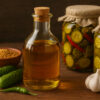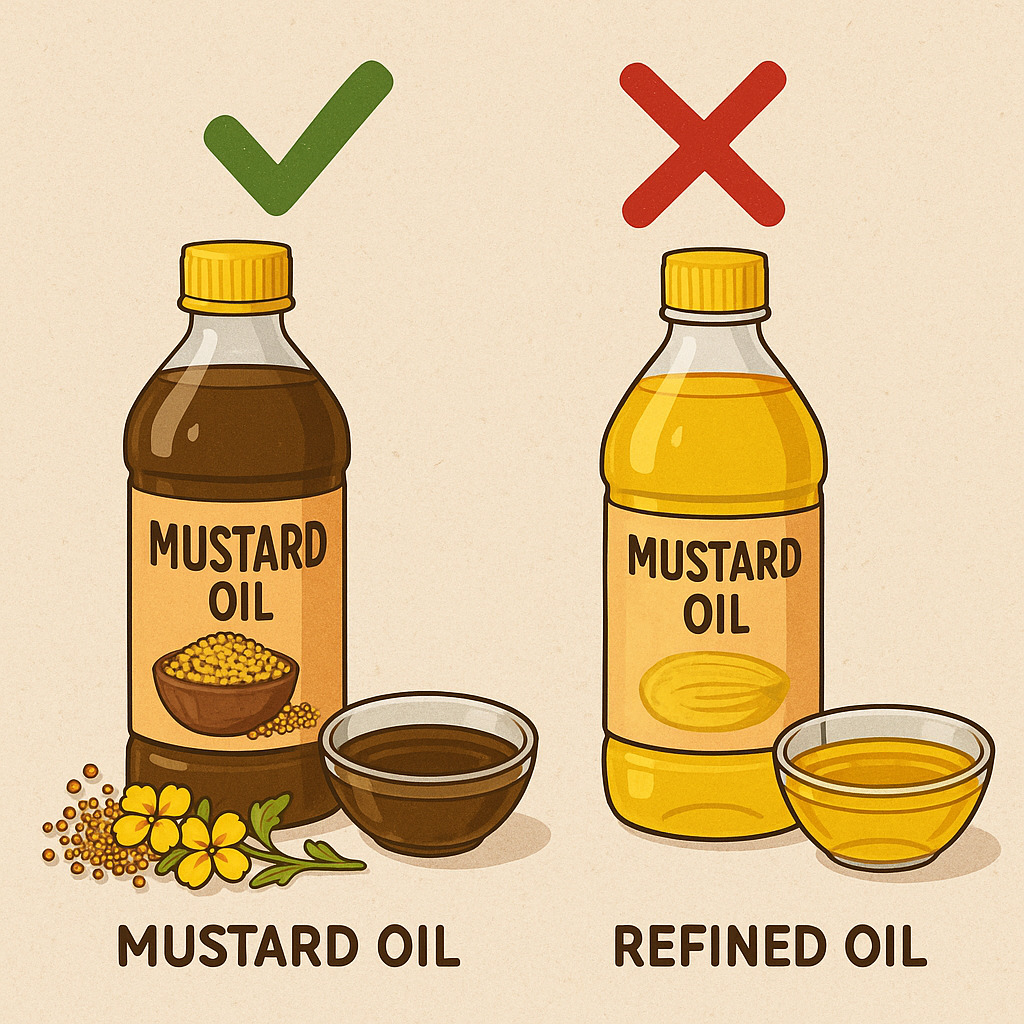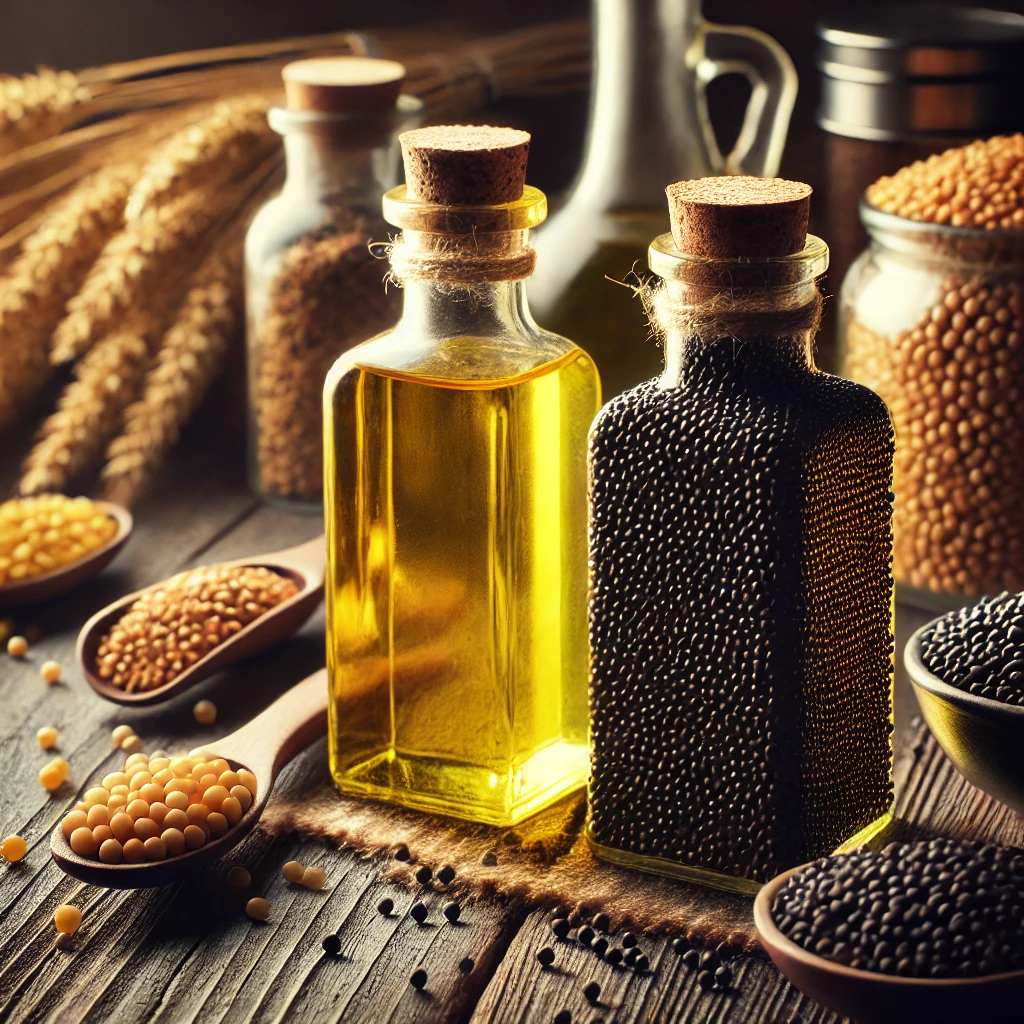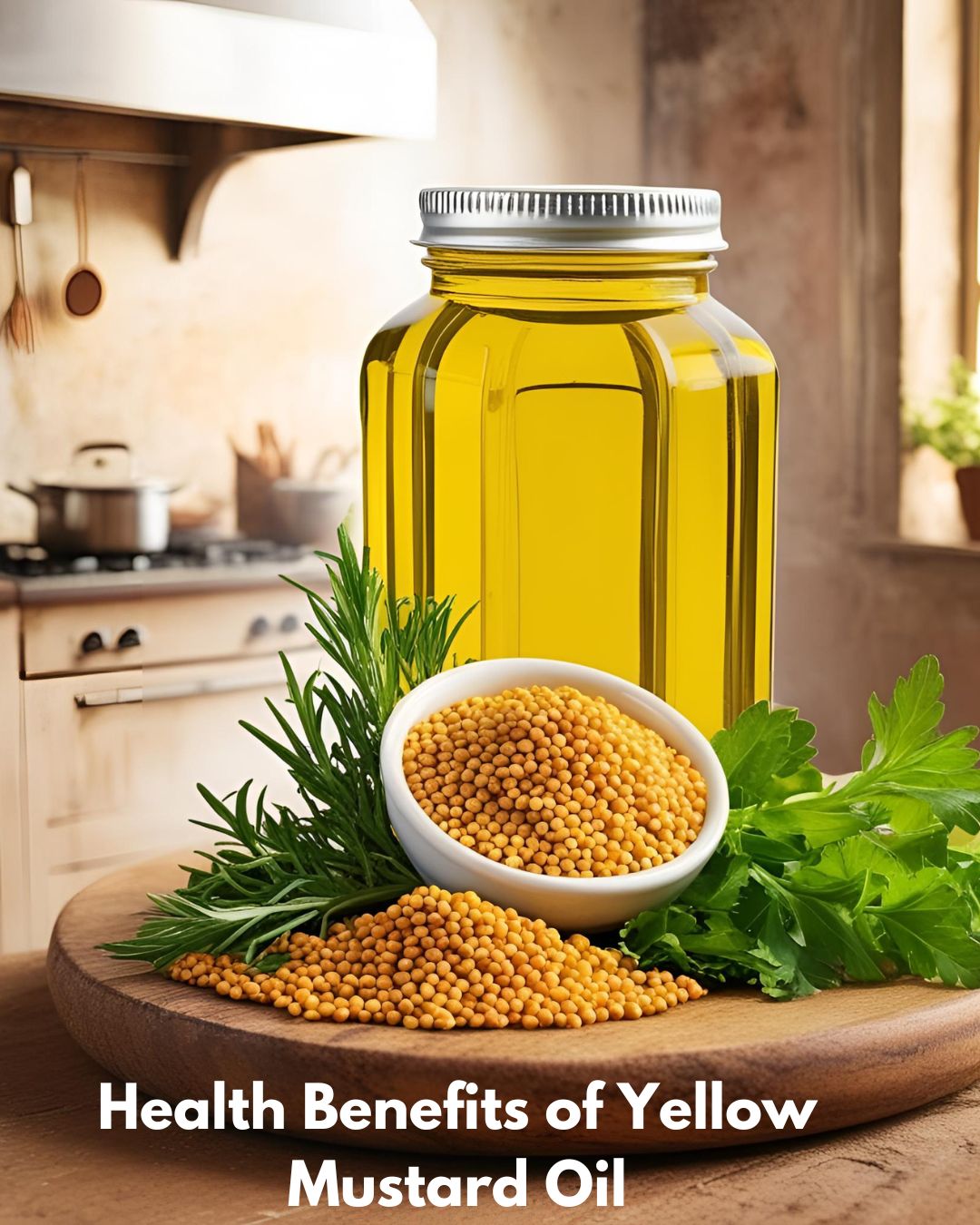There are not many cooking oils that can compete with mustard oil in terms of bold and dynamic flavors. Mustard oil is highly regarded throughout South Asian cuisine, not merely as a medium for cooking, but is integral to the identity of the dish itself. Let’s now take a closer look at how mustard oil changes and enhances the flavor of foods, and why it is such a widely-used ingredient.
1. Pungency That Awakens the Senses
Mustard oil has a powerful, pungent smell. This is caused by allyl isothiocyanate, a compound that gives a similar sharpness to horseradish and wasabi. When heated properly, the pungency of mustard oil subsides just a bit, but there is still a warming, peppery flavor that enlivens everything from vegetables to meats.
2. Earthy, Nutty Undertones
Raw (in pickles, dressings/chutneys), mustard oil has an intensely earthy flavor with a hint of nuttiness. It is also great for regional dishes like Bengali ‘Shorshe Ilish’ (hilsa fish in mustard sauce), where the raw flavor is not just preserved, but valued.
3. Enhances Natural Flavors
Mustard oil doesn’t dominate — it enhances. A drizzle of mustard oil over lentils, greens, or root vegetables will enhance the sweetness and earthiness of the ingredient at the finish of cooking and leaves the final dish tasting fuller and fresher.
4. Smoky Notes Through Tempering
Tempering spices (essentially “tadka”), in hot mustard oil create the smoky, toasty aromas that add another layer of complexity to a dish. When mustard oil is hot, cumin seeds, mustard seeds, curry leaves, and dried chilies awake in a special way and can create a fragrant base for a dhal, a curry, or a stir-fry.
5. Boldness in Marinades and Pickles
The pungency and antimicrobial aspects of mustard oil lend themselves to marination and pickling. Meats marinated in mustard oil absorb its pungency and thus, the finished dishes have a juiciness, rich flavor that is layered with spice and spice. Similarly, pickled vegetables will gain an enduring depth that you can only appreciate with the depth of oil.
Cooking Tip: Taming the Pungency
To soften the strong taste, it’s traditional to heat mustard oil until it just reaches its smoking point, then let it cool slightly before using it in recipes. This process, called “breaking the sharpness,” ensures the oil retains its characteristic flavor without overwhelming the dish.
Final Thoughts
Mustard oil especially traditional cold-pressed kachi ghani oil is more than just a cooking oil – it’s a flavoring, it’s a tradition, it’s a culinary revolution. Not to mention, whether you’re frying, sauteing, marinating, or finishing a dish, it will introduce a depth that will excite the most discerning palate.











Leave a reply